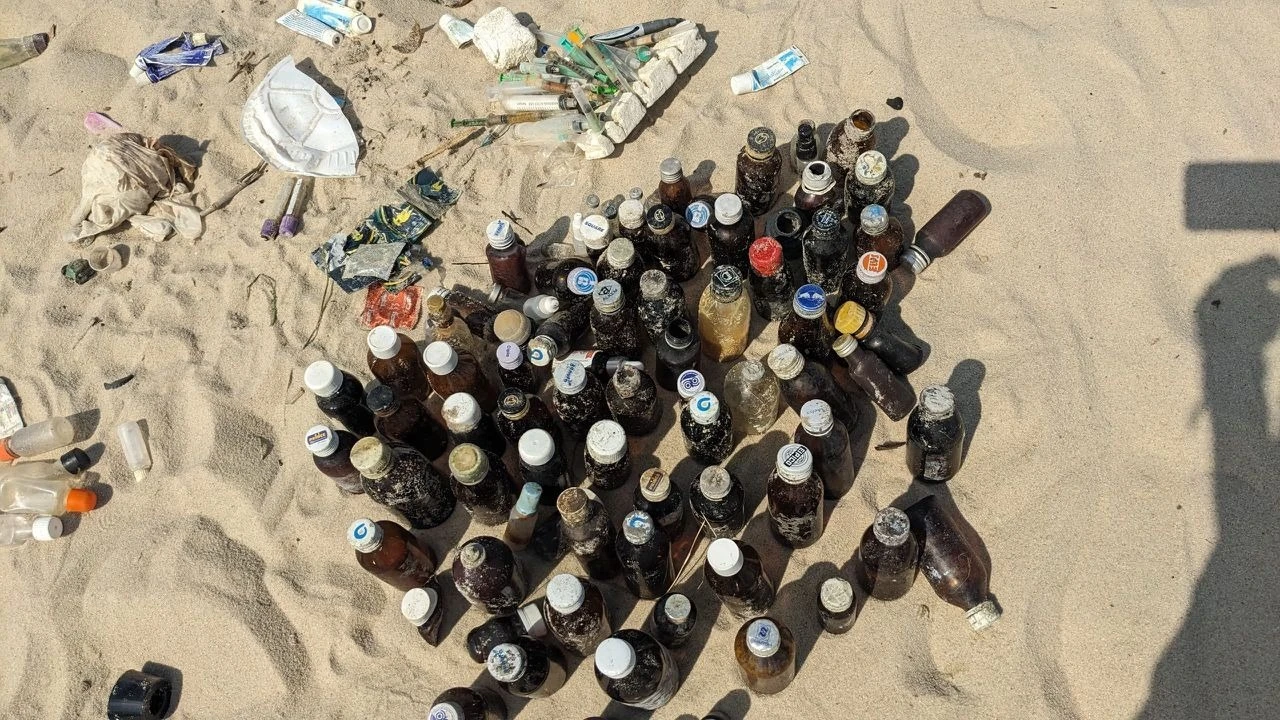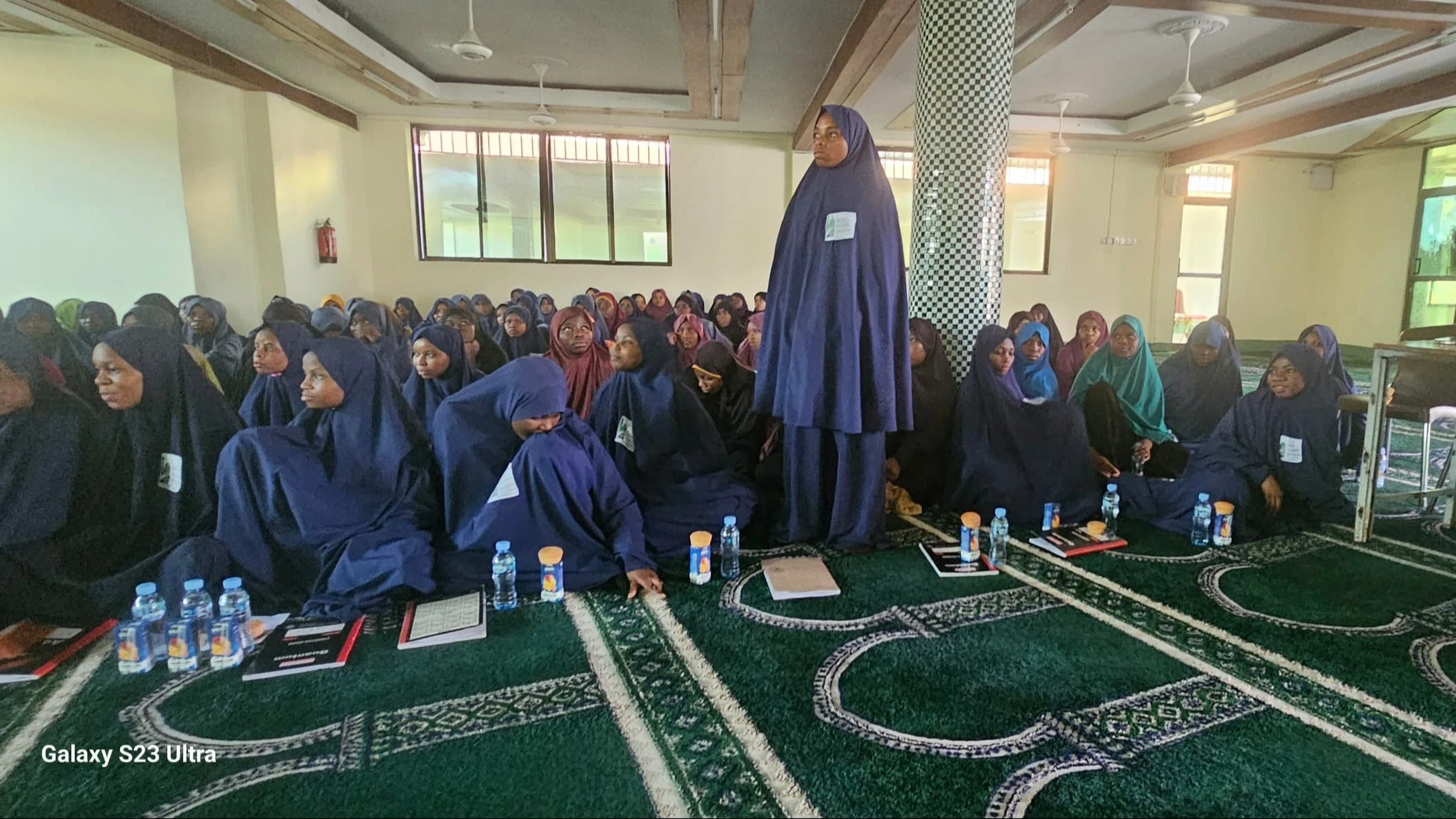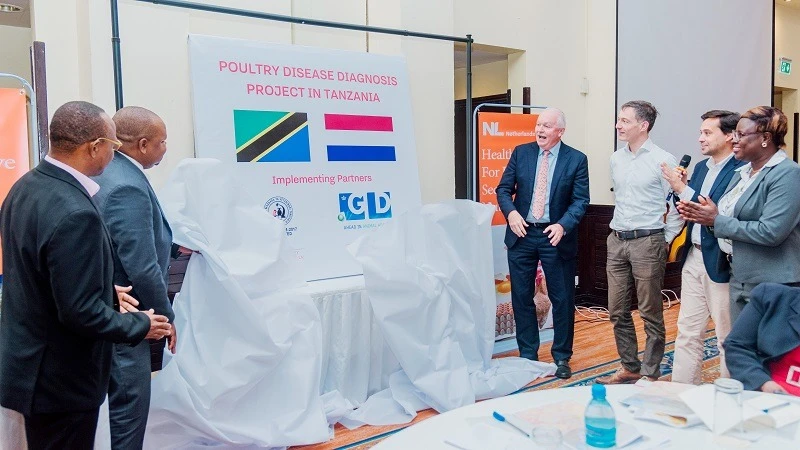Residents alarmed by hazardous medical waste dumping along the beaches in Dar

BEACHGOERS in Kinondoni Municipality, Dar es Salaam Region, face serious health risks due to hazardous medical waste washing up on local shores. Investigations by The Guardian reveal that medical waste, improperly disposed of by healthcare facilities, is being dumped into rivers that flow into the Indian Ocean, violating environmental regulations and endangering public health.
The Environmental Management Act of 2004, particularly Sections 137 and 139, mandates strict handling and disposal procedures for hazardous waste, including medical waste.
The law assigns responsibility to the Ministry of Health and local government authorities to ensure proper waste management. However, weak enforcement has resulted in indiscriminate dumping, leading to widespread pollution.
A 2019 report by the Dar es Salaam City Council estimates that the city produces 4,600 tonnes of solid waste daily, including medical waste. Alarmingly, only 6.5 percent (299 tonnes) is recycled, while 93.5 percent (4,301 tonnes) is improperly discarded, often ending up in rivers and, ultimately, on the beaches of Dar es Salaam.
A 2013 study by Samwel Manyele and colleagues, which assessed medical waste management in lower-level healthcare facilities (LLHFs) in Ilala and Kinondoni districts, found that 83 percent of health facilities in Kinondoni municipality dispose medical waste by burying it in pits.
The researcher discovered that more than 50 percent of the disposal sites lacked fencing and were located near residential areas.
According to the report, forty-seven percent of health facilities in Ilala and Kinondoni districts lack standard operating procedures for hospital waste transportation. The problem is severe in Kinondoni municipality, where 71 percent of healthcare facilities handle hazardous waste manually, which violates environmental laws.
At Rainbow beach in Kinondoni municipality, hazardous waste such as medical waste were scattered along the shoreline. These include syringes, IV drips, medicine bags and drug bottles, some of which were expired, posing a serious health risk to people using the area.
The presence of these materials poses severe risks, such as the spread of diseases like HIV, tetanus and even cancer.
Sarah Pima, Director of the Human Dignity and Environmental Care Foundation (HUDEFO), noted that her organization, along with other environmental groups, conducts bi-monthly clean-ups, collecting up to 13 tonnes of solid waste per session, with 8 percent of it being hazardous medical waste.
However, waste reappears within days, undermining clean-up efforts, asserted Pima.
Community concerns
People living near the beaches confirmed the worsening pollution. According to them, Rainbow Beach was a popular gathering spot, but the number of visitors has dropped tremendously.
Ramadhani Juma, who resides near the beach, said on-going pollution at the beach has worsened compared to the past five years.
“Five years ago, this place was clean and people would gather here until midnight. Nowadays, you can count visitors—at most 20. The situation has deteriorated as people fear for their health. Stepping on syringes may result in one being infected with HIV,” Juma told The Guardian.
Ramadhani Ally, a beverage vendor at Rainbow Beach, said the pollution has negatively affected businesses, as visitors who once came to relax and enjoy the ocean breeze have declined.
Ally recounted that he used to operate until 2am when the beach was clean and crowded; we now close businesses at around 8pm as many visitors leave early.
“I was getting up to 300,000/- a day, some five years back. Sales have now dropped to 50,000/- daily. My shop is almost empty because if I stock up, drinks may expire before they are sold,” he explained.
Maimuna Ally, a food vendor at the beach, said the unpleasant smell from the waste drove customers away.
“My business has been greatly affected. I now make 30,000/- a day; previously, I used to earn 100,000/- daily,” she said.
Hawa Abdallah, a food vendor, compared the foul odour to that of a public toilet.
“When the wind blows, the smell spreads, making destroy the situation worse. It’s not just hospital waste people also take advantage of the rain to flush out sewage,” she lamented.
Health and environmental risks
Medical experts warn of the grave dangers posed by improper medical waste disposal. Dr. Maxigama Ndosi, a specialist in neurology and spinal cord diseases at Muhimbili National Hospital (MNH), cautioned that rusty syringes increase the risk of tetanus, which has a fatality rate of 60 percent in severe cases.
He emphasized that medical waste should be collected in designated hazardous waste containers to prevent exposure.
Prof Philip Bwathondi from the University of Dar es Salaam’s School of Aquatic Science and Fisheries Technology highlighted the environmental damage caused by such waste.
He warned that syringes and other medical debris can harm marine life, with potential repercussions for human health, as marine organisms carrying pathogens can transmit diseases up the food chain.
Source of the problem
Investigations indicate that some private healthcare facilities in Kinondoni are illegally disposing of medical waste by paying informal collectors small sums to dump it into rivers and drainage systems.
During heavy rains, this waste is carried into rivers such as Mbezi, Feza, Mpiji, and Mlalakua, which flow into the Indian Ocean, causing recurring pollution on the beaches.
An anonymous waste collector admitted to secretly dumping hazardous hospital waste into rivers for as little as 5,000/- per trip. He claimed that some clinics deliberately wait for the rainy season to dispose of waste in the Msimbazi River, which carries it directly to the ocean.
A healthcare worker from a dispensary in Mbezi Beach also disclosed that many facilities opt to pay informal waste collectors rather than incinerate their hazardous waste, as government disposal services charge 3,000/- per kilogram, making proper disposal costly for small clinics.
Authorities’ responses
Despite existing laws, enforcement remains weak. The National Environment Management Council (NEMC) is legally mandated to regulate environmental pollution, but the persistent pollution at Rainbow Beach suggests that enforcement is inadequate. The government introduced the 2009 Solid Waste Management Regulations to promote the “Reduce, Reuse and Recycle (3R)” strategy, yet hazardous medical waste continues to be found on the city’s beaches.
Kinondoni Municipality Chief Medical Officer, Dr Peter Nsanya, stated that hospitals and clinics without incinerators are required to contract larger hospitals for waste disposal.
He added that quarterly inspections are conducted, with repeat offenders facing legal action, including closure.
Meanwhile, Kinondoni Municipality Environmental Inspector, Alban Mugyabuso, said the district has installed trash traps in the Feza River to prevent waste from reaching the ocean and is working to educate the public on proper waste disposal.
Role of private waste management companies
Private companies such as Chilambo General Trade Company Limited offer medical waste recycling and incineration services.
The company’s Chief Executive Officer (CEO) Gideon Chilamba told The Guardian that many healthcare facilities are reluctant to use their services due to costs and a lack of awareness.
“Even in Kisarawe District, Coast Region most hospitals don’t have incinerators, we don’t know where they dump their waste. Poor waste management is a serious problem are hazardous medical waste are often mixed with other trash,” Chilamba said.
To combat the growing crisis, experts and local leaders are calling for stricter enforcement of waste disposal laws, regular inspections of healthcare facilities, and tougher penalties for violators. Residents urge the government to investigate and take action against those responsible for illegal dumping.
Protecting Dar es Salaam’s beaches and public health requires a collective effort from authorities, healthcare providers, waste management companies, and the community. Without urgent intervention, hazardous medical waste will continue to pollute the environment and endanger lives.
Top Headlines
© 2025 IPPMEDIA.COM. ALL RIGHTS RESERVED

























